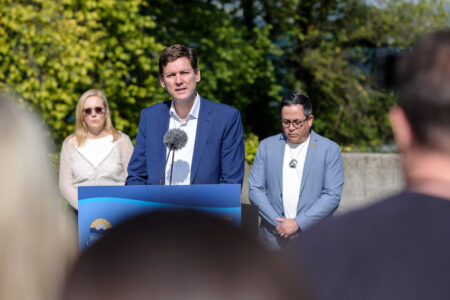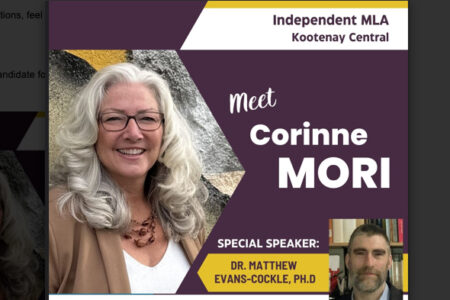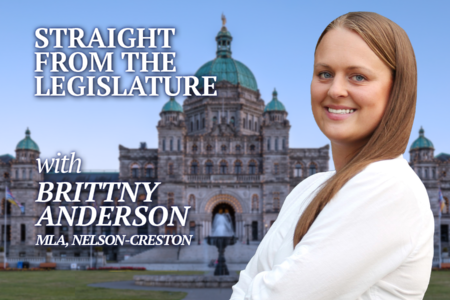Opinion: Nelson city council needs to re-think its communication about the budget
Councillor Robyn Cherbo, in the role of acting mayor at Nelson city council’s April 8 meeting, commented on the lack of public participation in the council’s recent budget process. “Maybe it’s time for a participatory budgeting process,” he said.
Cherbo did not explain what he meant by that and no one asked, but participatory budgeting is a process slowly gaining some momentum across the world and it is a sharp departure from the usual methods.
During February and March, council held its annual series of lengthy public meetings to formulate this year’s budget. No members of the public attended—not surprisingly as I will show below.
Council then held a budget open house for the public in late March, to show us the results of the budget planning and to ask our opinion of it. A handful of people attended.
I have covered Nelson city council news for three different media outlets off and on over the past ten years in Nelson. Mayor Dooley and several council members have told me many times that they are frustrated that the public doesn’t seem to care about the budget.
From their point of view, the budget is the council’s defining statement on what it thinks is important and possible. Creating it might be the hardest work they do all year.
The mayor, when he mentions this apparent public financial apathy, does so with a tone that is somewhat parental, seeming to scold people for not caring how their money is spent and not appreciating the work council puts into it.
But his and council’s expectations are unrealistic and their methods of communication about the budget are unimaginative and out of date. Here’s why.
Eyes glazed over
Few people are naturally attracted by budgets, and not many people are willing or equipped to look the budget of an organization or a government and make sense of it.
The only reason we understand our own personal budget (if we have one) is that we developed it and we can see at a glance how it affects us.
But delve into how municipal assets and reserves affect revenue and expenditures? Forget it.
Council would do well to accept the inherent eye-glazing tendency of charts, graphs, and columns of numbers, and then find new ways to engage people around the question of spending priorities.
Time and a done deal
Council’s annual budget planning meetings are many hours long, during the day, on weekdays. Most people who might care about the budget are municipal taxpayers—mostly people with jobs and/or families. Who has time to attend a long meeting about a subject that would take hours of study in advance to understand it?
I suspect people don’t attend also because they feel their presence would not have any effect, even if they understood the budget well enough to comment or try to influence it. By the time the budget open house comes around, the deal is probably done, barring a last minute public groundswell of some sort.
Communication in tiny font
And then there is the way the council communicates about the budget in the first place. A full-page budget spread that it wrote for selected media outlets this year reads like a political speech. The quotes from the mayor are self-congratulatory, boasting about the city’s great financial position this year, rather than being an educational attempt to help us understand. The text of the piece is in tiny font with graphs and charts crammed in. Reading it was a real slog.
Participatory democracy
About ten years ago some Nelson city councillors, including Donna Macdonald, formed a participatory democracy task force, whose purpose is explained well enough by its name, but it only lasted a couple of years and didn’t get far.
I have heard Mayor Dooley say that the demise of that committee proves there is no point in expecting the public to get more involved in council affairs.
Social media–a missed opportunity?
Since then, council has had participatory democracy handed to it on the silver platter of social media. But they are not interested.
I wrote in The Nelson Daily last August about the potential of social media to change the game for municipal communication, and I elaborated on it in an article in The Tyee in November. For those articles I interviewed several mayors around the province who are re-defining their jobs in a refreshing way by using social media—not in election campaigns, but throughout their terms of office.
For example, I quoted Port Coquitlam Mayor Greg Moore, who put up a survey on social media about his municipal budget. He got 250 responses.
“It was phenomenal compared to the four you would otherwise get from the same four people every year,” Moore said. “With social media, you can actually engage in a conversation about the budget.”
It’s true that Nelson’s mayor and several councilors are personally on Facebook, but only in an intermittent and unengaged manner that does not really invite our opinions or create conversations.
Social media is not the whole answer, but for elected officials, not going there is a decision not to go where most of their constituents are.
You can read my summaries of the issues in this year’s budget in The Nelson Daily here and here.

























